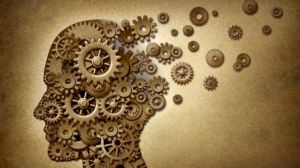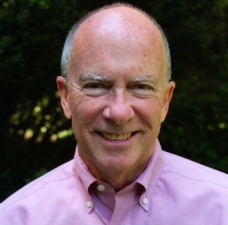Here’s a sampling. Quotations are from Wikipedia.
False Consensus Effect: “The tendency for people to overestimate the degree to which others agree with them.” I’m sure you’ve all found this to be true.
Gambler’s Fallacy: “I’ve flipped heads with this coin five times consecutively, so the chance of tails coming out on the sixth flip is much greater than heads.” No, it’s not. The odds are 50-50 for every flip, regardless of the length of any previous sequence that produced one result. Applicable to apparent batting slumps and other so-called streaks of good or bad luck or performance.

(io9.com)
Actor-Observer Bias: If you cut me off in traffic, you’re a complete jerk. I blame you and your rotten personality. But if I cut you off in traffic, I had good reasons for doing so and my character remains untarnished. On the whole, we’re not very perceptive about our own characteristics and motivations—or those of other people. We are, however, for evolutionary reasons, quick to identify whatever might be a threat and attribution errors create plenty of misunderstandings and conflict.
Illusion of Truth Effect: “A person is more likely to believe a familiar statement than an unfamiliar one.” Perhaps this has been a safety measure for our species in the long run.
IKEA Effect: “The tendency for people to place a disproportionately high value on objects that they partially assembled themselves, such as furniture from IKEA, regardless of the quality of the end result.”
Reminiscence Bump: “The recalling of more personal events from adolescence and early adulthood than personal events from other lifetime periods.” Perhaps the vivid imprinting of our first mistakes and successes has helped us survive. In general, our memories are biased towards thinking highly of ourselves.
Illusion of Transparency: “People overestimate others’ ability to know them, and they also overestimate their ability to know others.” Such overestimating gives us confidence about forming social bonds. If we were realistic about how difficult it is for one person to know another, we would be less likely to go to the trouble or take the risk.
These and other biases have either served our species in the distant past or result from the brain’s limited processing capacity. Since they won’t go away anytime soon, we have to compensate for them as best we can. Wisdom often amounts to an effort to do just that; strive to be humble, nonjudgmental, and cautious and your cognition may be more on target.
This article first appeared at 3.8 Billion Years.
The author
Brock Haussamen
I live in New Jersey and taught English at a community college for nearly four decades. I am married and have a daughter, a grandson, and step-children here in the state.
 I retired from teaching in 2006 in part to move on from teaching and partly to try to help reduce poverty locally and through global advocacy. For the past few years, I’ve served as a financial coach for low-income families.
I retired from teaching in 2006 in part to move on from teaching and partly to try to help reduce poverty locally and through global advocacy. For the past few years, I’ve served as a financial coach for low-income families.
I’ve also been thinking about the questions that catch up with most of us sooner or later: What is my purpose? How will I face death? What do I believe in? I’ve always liked and trusted the descriptions from science of how living things work and how we all evolved. But I could not put those descriptions together with my questions. Gradually, I’ve been coming to see how the history of life over 3.8 billion years stands inside and throughout my being and the being of others.
In my blog at threepointeightbillionyears.com, I’ve been exploring the variety of ways in which our experience is anchored not just in our evolution from primates but in the much longer lifespan of life itself.
 Naturalistic Paganism
Naturalistic Paganism

